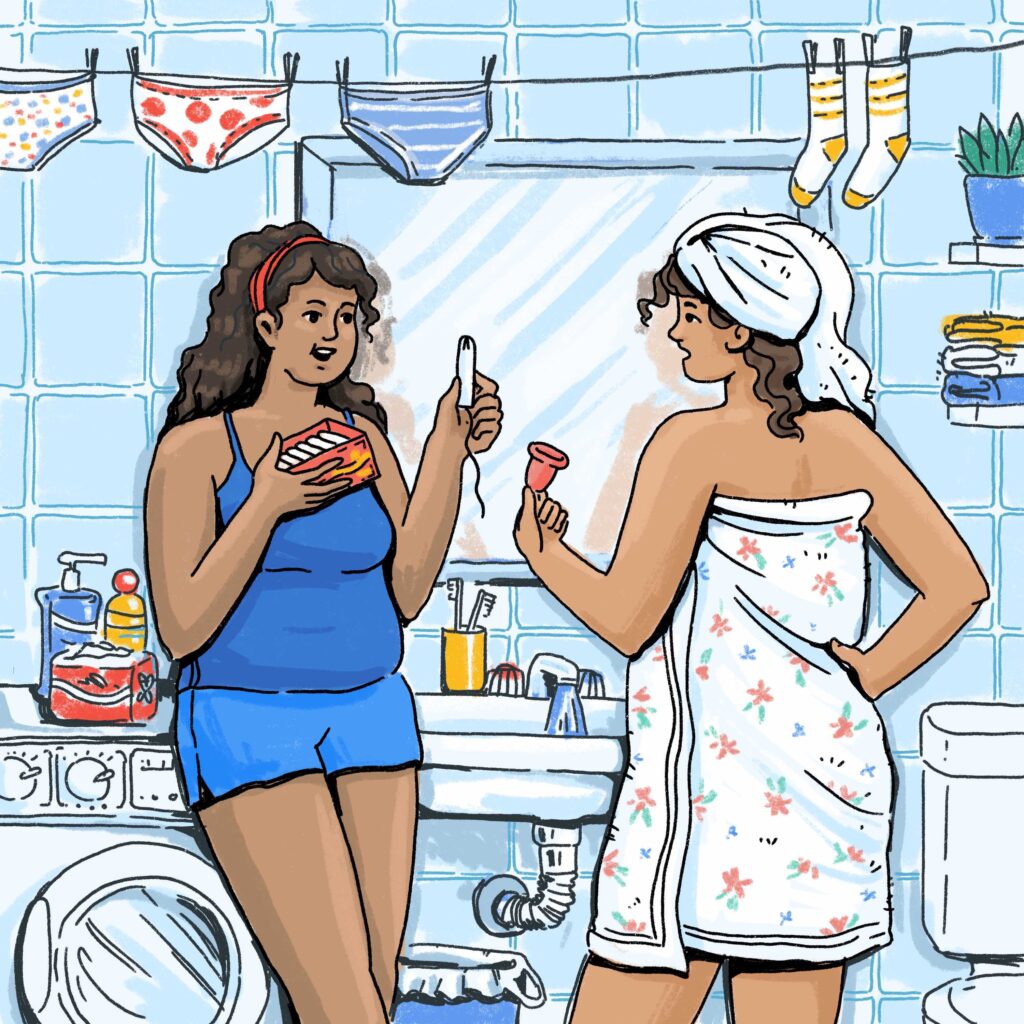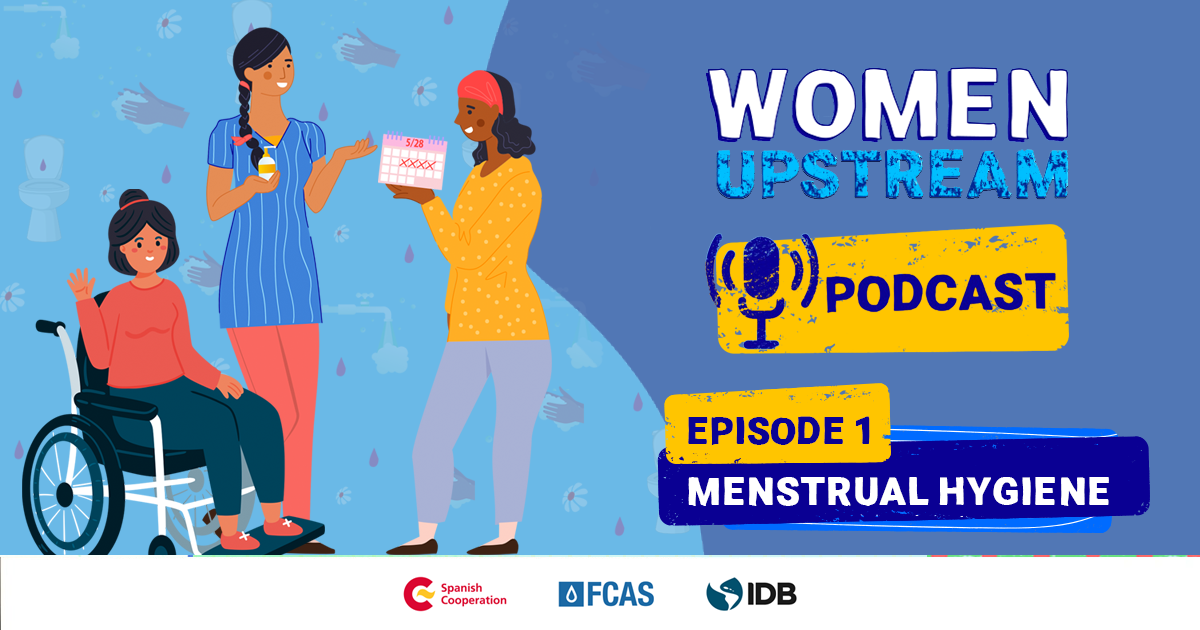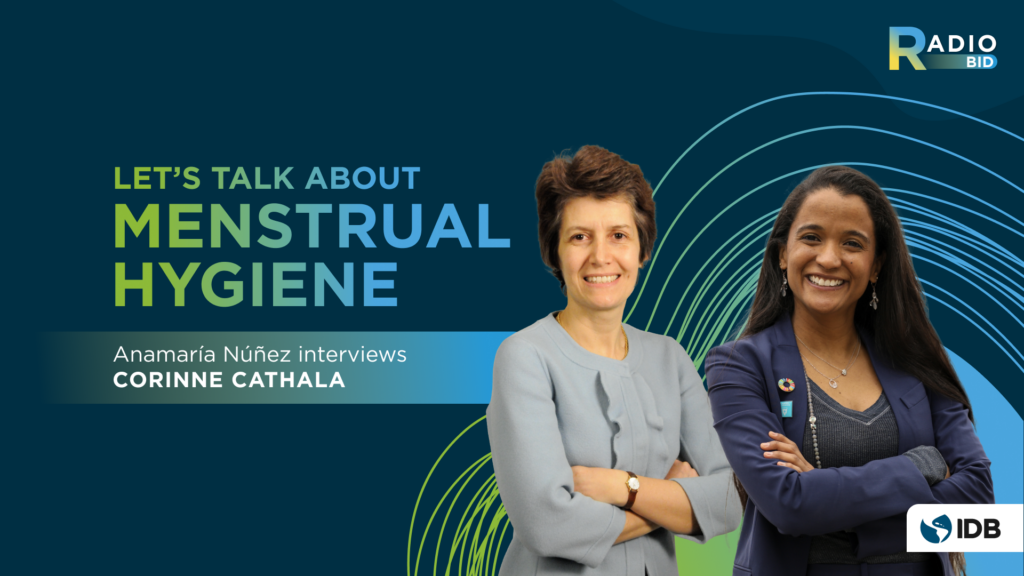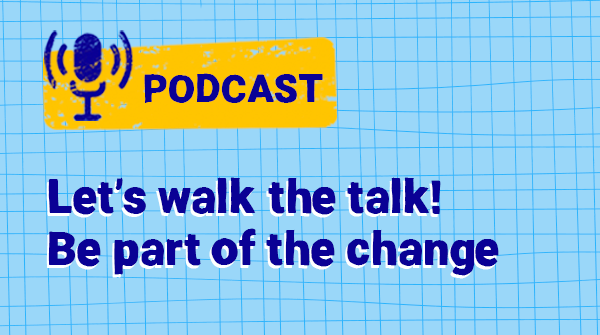Many of us are lucky enough not to think about the basic resources needed during menstruation. But having easy access to water and sanitation without significantly changing your daily life is a powerful tool for equity. On World Menstrual Hygiene Day, we reflect on the power that water and sanitation projects give to menstruating people.
By Andrea Ortega C.
The toilet should be our favorite place in our homes. Not because it’s the prettiest, much less the biggest, but because we have it. Thanks to our toilets, we can manage our menstruation and thus do all kinds of activities without having to think much more about it. This is still not the case for all menstruating people in Latin America and the Caribbean.
According to UNESCO, one in four women menstruates for two to seven days of each month, meaning that they bleed an average of seven years during their lives. Through this lens, it is impossible not to understand how lack of access to water and sanitation is an obstacle to equality for all menstruating people.
In Latin America and the Caribbean, there are almost 17 million people who still do not have basic water services for consumption and 72 million without access to a decent bathroom in their homes, according to the Joint Monitoring Program of Water Supply, Sanitation and Hygiene (JMP).
Lack of water and sanitation for menstrual hygiene lays the foundation for multiple gender gaps that girls, women and minorities must confront. For example, absence of adequate toilets increases school absenteeism. According to UNICEF data, a girl can miss between 1 and 4 days of school every month, which can harm her academic performance and increase her chances of dropping out.
In the workplace, menstrual management also faces barriers: from accessing products and appropriate sanitation to being able to take breaks or leave if cramps are too intense. This generates unequal working conditions in environments where the gender perspective is not applied.

In rural areas, the situation is even worse since job sites rarely have the appropriate sanitation infrastructure. Additionally, the required physical effort, lack of information, and taboos further marginalize girls, menstruating women, trans, and non-binary people during their period. Some studies show that myths – such as the fear of washing with water because it is incompatible with blood, or the perceived danger of getting close to a crop because it can ruin its growth – make menstrual management even more difficult and act towards the detriment of equity and inclusion.
For this reason, the Inter-American Development Bank (IDB) and the Spanish Agency for International Development Cooperation (AECID), through the Spanish Cooperation Fund for Water and Sanitation in Latin America and the Caribbean (FECASALC or Fund), developed water and sanitation projects that benefited more than four million people in Latin America and the Caribbean.
As an example, in Portoviejo, Ecuador, AECID is working on a project that has a transversal gender approach. It also has a specific menstrual hygiene component to strengthen women’s capacities through the experience-based Potable Water and Sewerage Program, which allows participants to analyze the symbolic and cultural elements that affect women’s sexuality and deepen their relationship with water and sanitation.
Through the Fund and projects like these, the IDB and AECID worked to close gender gaps through universal access to water and sanitation. These services are essential and the next time you enter a bathroom you will surely recognize their value.
Discover in our podcast on Menstrual Hygiene Day at Radio BID how access to basic services can impact the lives of millions of people and enable them to live the life they desire.
Transcription in the following languages:
To learn more about the work of FECASALC and its projects in the last 12 years, download “Advances and contributions of FECASALC to the water and sanitation sector in Latin America and the Caribbean“.
*Andrea Ortega Carreño is a Communications Consultant for the IDB and the Spanish Cooperation and supports the Spanish Cooperation Fund for Water and Sanitation in Latin America and the Caribbean. She is a doctoral candidate in Feminist and Gender Studies at the Universidad Complutense de Madrid.




Leave a Reply